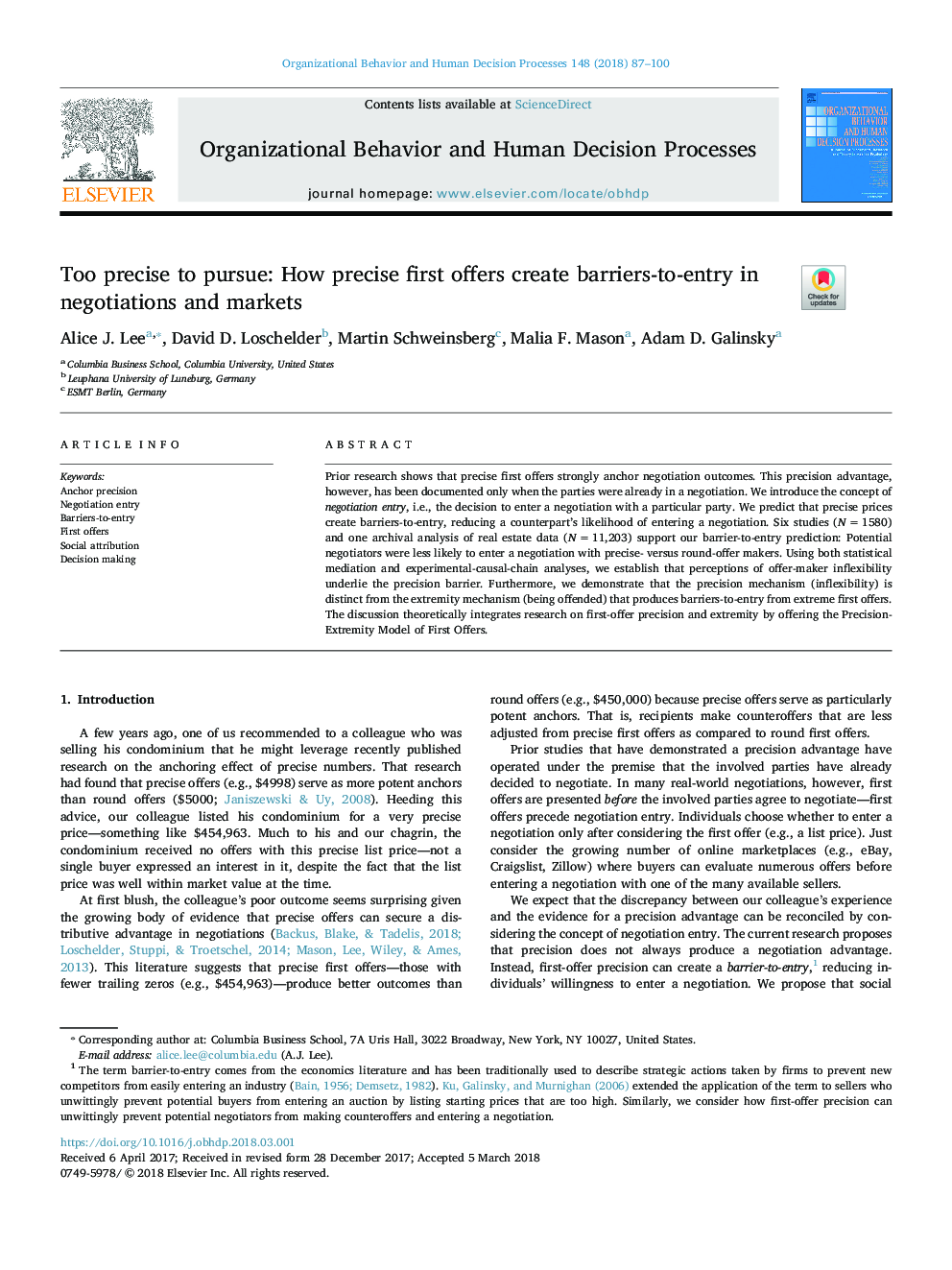| Article ID | Journal | Published Year | Pages | File Type |
|---|---|---|---|---|
| 9952875 | Organizational Behavior and Human Decision Processes | 2018 | 14 Pages |
Abstract
Prior research shows that precise first offers strongly anchor negotiation outcomes. This precision advantage, however, has been documented only when the parties were already in a negotiation. We introduce the concept of negotiation entry, i.e., the decision to enter a negotiation with a particular party. We predict that precise prices create barriers-to-entry, reducing a counterpart's likelihood of entering a negotiation. Six studies (Nâ¯=â¯1580) and one archival analysis of real estate data (Nâ¯=â¯11,203) support our barrier-to-entry prediction: Potential negotiators were less likely to enter a negotiation with precise- versus round-offer makers. Using both statistical mediation and experimental-causal-chain analyses, we establish that perceptions of offer-maker inflexibility underlie the precision barrier. Furthermore, we demonstrate that the precision mechanism (inflexibility) is distinct from the extremity mechanism (being offended) that produces barriers-to-entry from extreme first offers. The discussion theoretically integrates research on first-offer precision and extremity by offering the Precision-Extremity Model of First Offers.
Keywords
Related Topics
Social Sciences and Humanities
Business, Management and Accounting
Marketing
Authors
Alice J. Lee, David D. Loschelder, Martin Schweinsberg, Malia F. Mason, Adam D. Galinsky,
